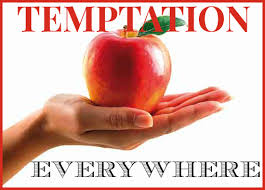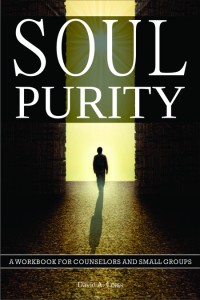I woke up smelling smoke. Immediately my body went into gear, fearing the worst. My heart rate went up, and I felt tense and anxious. It took me another hour to gear down after checking and verifying that nothing was amiss. Any thought of uncontrolled fire overwhelmed me.
Fortunately, this was not the first time I had to deal with powerful anxiety. Having lived through the Duvalier era (1980s) in Haiti, we experienced the intense trouble and events surrounding several coup d’états, country-wide unrest, and civil war that accompanied the uprising and rebellion in that country. The intensity and the kind of trouble in these two situations (uncontrolled fire and an uncontrolled civil rebellion) were widely different, but the symptoms of my anxiety were very similar.
Trigger events
For me, both the anxiety related to smelling smoke and the anxiety related to anything that sounded like machine guns, bombs, and rioting crowds became problematic to my daily activity and ministry. It was easier to hide the effects of the smoke than the apparent sounds of revolution. What triggered my anxiety in these instances?
The trigger for my anxiety that relates to fire was a mega-blaze in the silo of our farm that took many hours to extinguish. The trigger related to certain sounds and smells were the series of events around the dethroning of a dictator and his evil thugs. Since those events in Haiti have receded, having taken place between 1986-90, I have not found myself struggling with those triggers as much. But the church folks, especially the leadership, in Saint John, New Brunswick, Canada, were aware that when we left Haiti and came to Saint John to get some rest, we needed time to heal and to renew our outward focus and demeanor. We did not realize how much the revolution had affected us.
Being my own messiah
Here is where I want to bring truth to bear on my experience; and I hope at the same time, I will help others who have dealt with anxiety, especially anxiety attacks. A “trigger” is not something I have control over. I don’t know when something like these smells or sounds will show up. And if I try organizing life unrealistically around my fears and anxieties in an effort to avoid the “triggers,” I am taking the first step in being my own messiah. Instead, I need to allow God to control these things. He is my Messiah, my God. Does that reality lessen the potential impact? Not necessarily. But it does in the big picture. When dealing with anxiety and the triggers that my body, soul, and mind respond to, I spiral further into fear only when life depends on me. I am a terrible messiah. I am weak. But I can tend to think that if I really work hard at the ignoring of or the dealing with triggers, I will somehow make it through the anxiety-ridden moments. An example would be someone with a fear of bridges who drives an extra 30 minutes to work to avoid going over a bridge that would save her lots of time in the morning if she could conquer the fear somehow. In this example, the woman with the bridge phobia has re-arranged her life rather than allowing God to show her a better way.
I realize that the body (especially the brain) reacts immediately to the kinds of things that trigger our anxieties. That kind of physical reaction can feel like we are being attacked by anxiety and that we have no control over it. I can testify to many days where I felt that way with any kind of fire or smoke in my presence. Having gone through an all-night ordeal in putting out a fire that reached 30-50 feet into the air, my body automatically went into its God-ordained “fight and flight” mode without any thought on my part. However, in order to begin to turn that physical and emotional response-indicator down towards off, I needed to realize that God was still my Messiah, even in allowing this event to be a part of my life. He is my Savior.
You say, “But you still have to be careful with fire. You have to make sure it is not out of control. And maybe the best fire is no fire at all.” That is the way we might rationalize our way into controlling and eliminating anxiety from our lives. But fire is very useful and helpful. Fire was created by God for warmth, for cooking, for enjoyment, especially when, like me, you lived in the north-woods of Wisconsin. We like campfires and bonfires. But after my ordeal battling a huge blaze, I did not like the idea of a campfire. I hated the idea of building a fire or loading a wood stove now. I was all tense at the very thought of having to join my family around a fire. I did not want to lead a camp group in singing and laughing around a bonfire. But I needed to do all of these things. God had my being around fire as part of what I do for life and ministry. So what now? How does God’s Word, His grace, and His Spirit help me to face triggers and very real physical responses? Will I always have panic attacks as a normal course of life? Our follow-up article will share some powerful help. Refer to the follow-up article here.

 Have you heard of the book series Eat This, Not That? Well, the author contrasts food choices that would seem to be healthy, but are not, with food choices that are better for you. He advises to eat frosted mini-wheats rather than granola because granola has lots of sugar. Well, I would like to create my own spin on this title. The heart of this post is an encouragement to believers to “say this to yourself, not that.” Preach the Gospel to yourself instead of living a life of bitterness, fear, revenge, doubt, regret, or in any other number of realms that equate to spiritual poverty. Do we really understand what it means to preach the Gospel to ourselves daily, why exercising this principle is so important, and why the Gospel does not stop meeting our needs after the moment that we identify with Christ and accept Him as our Savior?
Have you heard of the book series Eat This, Not That? Well, the author contrasts food choices that would seem to be healthy, but are not, with food choices that are better for you. He advises to eat frosted mini-wheats rather than granola because granola has lots of sugar. Well, I would like to create my own spin on this title. The heart of this post is an encouragement to believers to “say this to yourself, not that.” Preach the Gospel to yourself instead of living a life of bitterness, fear, revenge, doubt, regret, or in any other number of realms that equate to spiritual poverty. Do we really understand what it means to preach the Gospel to ourselves daily, why exercising this principle is so important, and why the Gospel does not stop meeting our needs after the moment that we identify with Christ and accept Him as our Savior? The other day, we were talking to our daughter Julie and her husband Rob about the times in our lives when creation astounds us: when we see the hand of God in a powerful storm or when we witness the roaring waters of a cascading falls or when we sense the carefulness of a hummingbird, feeding at nectar. These moments sometimes do not click as a gift from our Creator—an opportunity to ponder the splendor of what He has made for us to enjoy.
The other day, we were talking to our daughter Julie and her husband Rob about the times in our lives when creation astounds us: when we see the hand of God in a powerful storm or when we witness the roaring waters of a cascading falls or when we sense the carefulness of a hummingbird, feeding at nectar. These moments sometimes do not click as a gift from our Creator—an opportunity to ponder the splendor of what He has made for us to enjoy.






